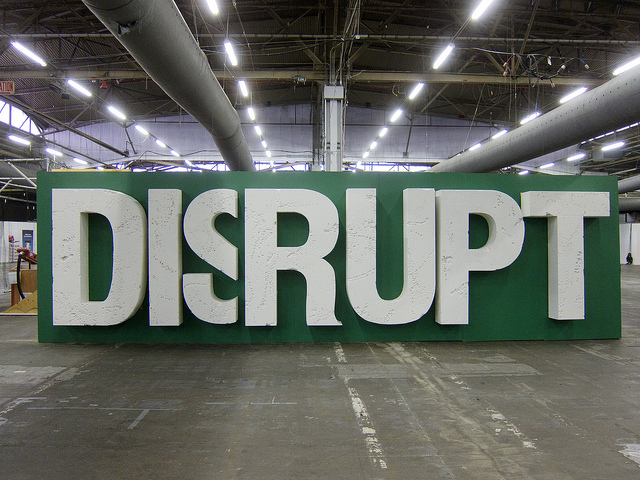These remarks were delivered in London on Sept. 27, at the start of the three-day Dive In Festival, an initiative designed to enable diversity and inclusion in the insurance industry.
Thank you, Inga. I appreciate that you feel I might be able to add something meaningful to today’s conversation. But I have to admit that as I put together my remarks, I felt a growing frustration.
I’ve been talking about aspects of diversity and inclusion for awhile now. When I was at Marsh, the subject was one of the main focuses of a retreat I had with my senior management. At the time, Marsh had a lot of issues, and how to build a more diverse leadership was one of them.
A couple of years ago, I gave a speech at a captive conference in Bermuda called Where Are the Women? I quoted chapter and verse from all the studies that have been done that prove having women in senior positions and at the board table contributes to an improved bottom line.
In the last year or so, I’ve talked about how diverse the millennial generation is, and how they expect their workplaces to respect and reflect that diversity.
See also: Is the Data Talking, or Your Biases?
Those talks also quoted chapter and verse showing that diverse teams produce innovative solutions that translate to better business results. And last year, I spoke at the annual meeting of the Insurance Industry Charitable Foundation. That speech was called Where Are the Women – One Year Later. The answer wasn’t a satisfactory one.
Over the years, not much has changed. Just more talk and more research. I’m at the point where I want to say – enough! We’ve talked enough. We’ve researched enough. We have proof that diverse teams are more creative. We have proof that when employees feel included, you get superior results. We have proof that we need to do a much better job of attracting millennials to the industry.
I won’t bore you by citing the studies that make the business case for diversity. And quite frankly, I don’t care about the business case. Because this is the right thing to do. Exclusion has no place in any industry, not just insurance. We all know this is true.
And yet changes we’ve made over the years have been incremental, not fundamental. We’ve made some progress with race and gender parity, but truly diverse bench strength just hasn’t materialized. Why?
One reason is that it’s difficult to break up the status quo, and old habits die hard. Look at Lloyd’s. Here’s a venerable institution, with a culture and tradition all its own, and a way of doing business that’s been forged over the centuries. Lloyd’s is to be celebrated for its resilience and endurance, and for the iconic global brand that it’s established. But for the most part, the market has been built by males – mainly white – who are used to working together.
This shouldn’t be taken as criticism. Lloyd’s is not the only place that’s diversity-challenged. And the fact is - a homogenous group develops its own shorthand and leans on its shared experiences. It’s a comfortable and familiar way to do business. Nothing particularly wrong with that – except that in today’s world, a group like that is an anachronism.
Look at the world in the 21st century. Fifty percent of the population is under the age of 30. That’s billions of people with a profoundly different perspective than the generation now running the insurance industry. In the U.S., racial minorities will be the majority in less than 20 years. In the U.K., there’s a similar trend although not as pronounced. If our industry is going to remain relevant, our workforces must mirror the world we live in.
If we’re going to undertake partnerships like Blue Marble, the microinsurance venture that relies on technology to address the massive protection gap in the developing world, we need digital natives in our offices, not digital immigrants like me.
Everyone here today knows this. I’m preaching to the choir. So what’s the reason we haven’t made more progress?
Legislation that prohibits discrimination in recruitment and employment practices has been in place in our major markets for years. Every leader I know in the industry is committed to this issue. And yet – even though more than three quarters of insurance CEOs surveyed recently have a strategy for diversity and inclusion, the same survey warns that underrepresented groups feel this is mere lip service.
Eighty percent of the women surveyed feel that, while their leaders may SAY they’re committed to diversity, career opportunities aren’t equal and promotion is biased toward men. The same goes for people of color.
See also: How Diversity Can Stoke Innovation
What’s really at play here? In Bermuda, the first event in our Dive In Festival is a workshop on unconscious bias. Kathleen and her team chose the subject because they feel it’s a significant factor in how we create a diverse and inclusive industry. Inga touched on it last year when she launched Dive In. She warned that unconscious bias “makes managers hire in their own image, missing out on the perspectives and insights that come from people with different backgrounds, gender, cultures, sexuality and physical impairments.”
And there’s the rub. For all the intellectual support we give diversity and inclusion, we still haven’t found a way to confront the biases each one of us has. Unconscious bias is another area where there’s been a lot of research.
Some statistics here might be helpful in understanding how this works. Our brain processes about 11 million pieces of information a second. To manage this constant influx of data, we develop mental shortcuts to handle what we’ve learned so we’re not overloaded by what we’re learning. These shortcuts are influenced by our environment, our upbringing and our experiences. And depending on what those influences are, we end up holding stereotypes we’re often not aware of. That’s the gist of unconscious bias.
Implicit or unconscious bias prompts our brains to make snap judgments without even thinking about them. It’s easy to see how this can affect hiring and promotion decisions.
I’d like to pause here, because I know that some people balk at this explanation for why we’ve made so little progress with diversity and inclusion. To anyone who’s been on the receiving end of what feels like a discriminatory decision, this sounds much too convenient. In other words: Don’t hide behind the excuse that your preconditioned brain made an unfair hiring decision.
This is a fair comment. I’m not saying that our industry’s management is so evolved and self-aware that conscious decisions to discriminate have been eliminated from the workplace. We know that’s not the case. However, if we accept that unconscious bias does affect our ability to make meaningful progress, what do we do about it? How do we recognize our biases and learn how to compensate, so that the diversity and inclusion balance tips in the right direction?
Events like Dive In help. For the next three days, thousands of people working in our industry will be thinking and talking about diversity and inclusion. That’s a great start. I’m involved in another initiative called the Insurance Careers Movement. This is a campaign to compel millennials to choose insurance as a career. One of its key messages is there’s a place for everyone in our industry.
I’m grateful to Inga for joining me in this effort. Both Dive In and the Insurance Careers Movement keep issues of diversity and inclusion at the forefront. They raise our collective awareness. Ultimately, it’s people like me who have to commit to making a difference, because the buck stops with us.
The most obvious way for industry leaders to tackle unconscious bias – and perhaps the easiest - is to challenge our management to build diversity metrics into recruitment, hiring and promotion policies. This doesn’t imply that qualifications, education and experience don’t matter or should be discounted. But it formalizes and embeds a focus on diversity, and that’s important.
We can make sure our work spaces are inclusive. Can a person with a physical impairment work there comfortably? For example, are our offices wheelchair accessible? Do our corporate policies accommodate neurodiversity? There are companies who recognize that the pool from which they draw talent can include employees on the autism spectrum. They’ve created a working environment that makes these employees feel welcome and valued.
Do we offer our management opportunities to take workshops and seminars on what a diverse and inclusive company looks like? There are lots of concrete examples of how unconscious bias can be offset by a corporate culture that enables diversity and inclusion.
But: With all that, I keep coming back to one essential truth: Creating a diverse and inclusive industry is the right thing to do. It’s always been the right thing to do. It’s never been the easy thing to do. As I said earlier, it’s much easier to stay with the same than choose the different.
To greater and lesser degrees, we all know what that feels like. Think of a time when something about you was held against you – often something completely beyond your control. It could be your social status. Or the color of your skin. Or your religion. Or who you love.
See also: Language and Mental Health (Part 3)
At one time or another, each of us has felt that we were being judged unfairly and that opportunities for which we were qualified were withheld for all the wrong reasons. I include myself in those comments. I was raised by a single mom who, as a separated but devout Catholic, was judged by her church and her community as "less than."
Those are difficult memories for me. But as difficult as they are, they gave me a compassion and an empathy for what it feels like to be excluded.
As we work to improve our corporate practices, and offer training, and host events like Dive In, I’d like to challenge all of us to remember what it feels like to be on the outside looking in. If we can hold onto the compassion and empathy those memories generate, I believe we can begin to overcome the unconscious bias that’s inhibiting our progress toward a diverse and inclusive industry.
We know it’s the right thing to do, so let’s do it.
Thank you.








